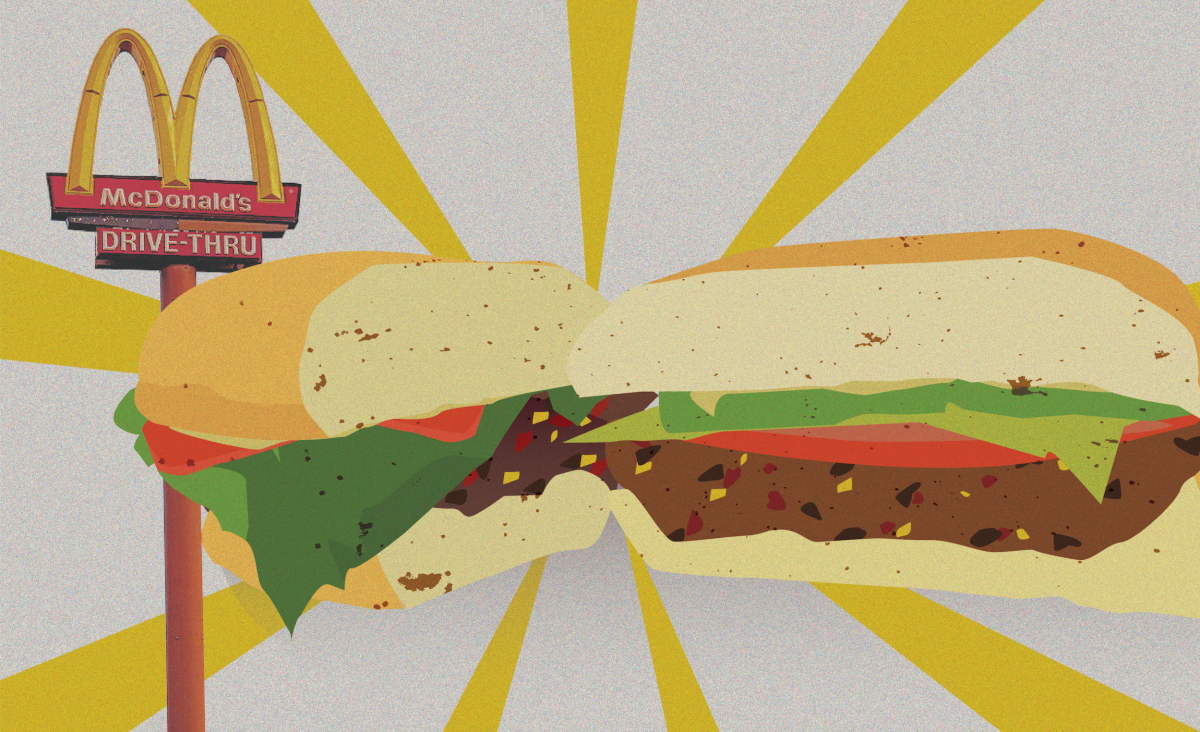Despite national attention given to the one-day walkouts of fast-food workers in cities from Austin to New York, the response from federal and state governments, as well as from corporate America, has appeared slow and unsatisfying.
By Max Adler
On August 29, fast-food workers across the country participated in strikes during peak work hours, demanding a substantial increase in pay to a “living wage” of $15 per hour. The turnout in Austin was small — only a few dozen workers — where as in New York there were several hundred protesters, including City Council Speaker Christine Quinn, gathered outside a single McDonalds in midtown Manhattan. The fast-food labor movement in Texas is still in its infancy, according to the Texas Organizing Project, one of the groups organizing the walkouts.
The National Employment Law Project has determined the nationwide median hourly wage of fast-food workers to be $8.94. If the protesting workers are successful, the fast food industry would see a drastic increase in the cost of production. A wage increase will likely only occur as a result of legislative action since the service industry would see a sharp decrease in profits if a $15 minimum wage were implemented.
Glen Gary of the Texas Restaurant Association says that such a raise in the price of labor would drive down volume significantly because restaurants would pass on costs to consumers. “The reality of the industry is that fast-food restaurants would not be able to offer food at such low prices if they were forced to pay their workers $15 an hour. We recognize the challenges of raising a family of four on the average salary of a fast-food worker in Texas, but minimum wage is still plenty for teens looking to make extra money,” he says.
Summer Wik is a full-time employee at Wendy’s and is one of the roughly 25 percent of fast-food workers who are raising children. “Me and my son’s father make just enough not to qualify for most government benefits and since day care costs are so high, we can’t even afford to buy into the company health plan,” Wik says. Wik earns $7.75 an hour and she said people who work 40 hours a week “shouldn’t be living in poverty.” Texas was one of only two states to see a decline in the percentage of citizens living below the poverty line, yet one in four kids in Texas still live in poverty. “We should at the very least be offered a health insurance plan that I can afford,” she says.
The growing media attention toward the fast-food labor movement, as well as other labor movements across the country, has forced people to question whether the government has a responsibility to assure that those who work full-time earn a “living wage” or whether wages should be dictated by market conditions. California’s Governor Jerry Brown has already formed his own conclusions on the matter.
On Tuesday October 1, Governor Brown officially signed a law making California’s minimum wage the highest in the U.S. At $10 an hour, California’s minimum wage is $2.75 above the federal minimum wage. The wage will not change automatically according to increases in inflation, like it does in other states, such as Washington state. “The minimum wage has not kept pace with rising costs. This legislation is overdue and will help families that are struggling in this harsh economy,” Governor Brown explains.
Although California’s increased minimum wage certainly will help full-time workers in that state, this modest increase will only minimally address the financial woes confronting part-time workers who still will not be able to afford meaningful healthcare. And, most of the new jobs being created in the country’s turbulent and uncertain economy only allow employees to work part-time. Eric Adler, a lawyer specializing in Labor and Employment, says he expects low-paying and low-skill jobs to continue to be created, but he is skeptical about the overall health of the job market. “The best way that companies can increase profits these days, is to lower payroll cost. The expected rise in the cost of health care has also really scared employers away from increasing their wages,” he adds.
Despite nationwide protests, Adler believes that the fast-food workers strike will prove to be ineffective. “The only way to effect change on a corporate level would be if the public demanded higher wages for their fast-food servers by boycotting the industry,” Adler says.


















































